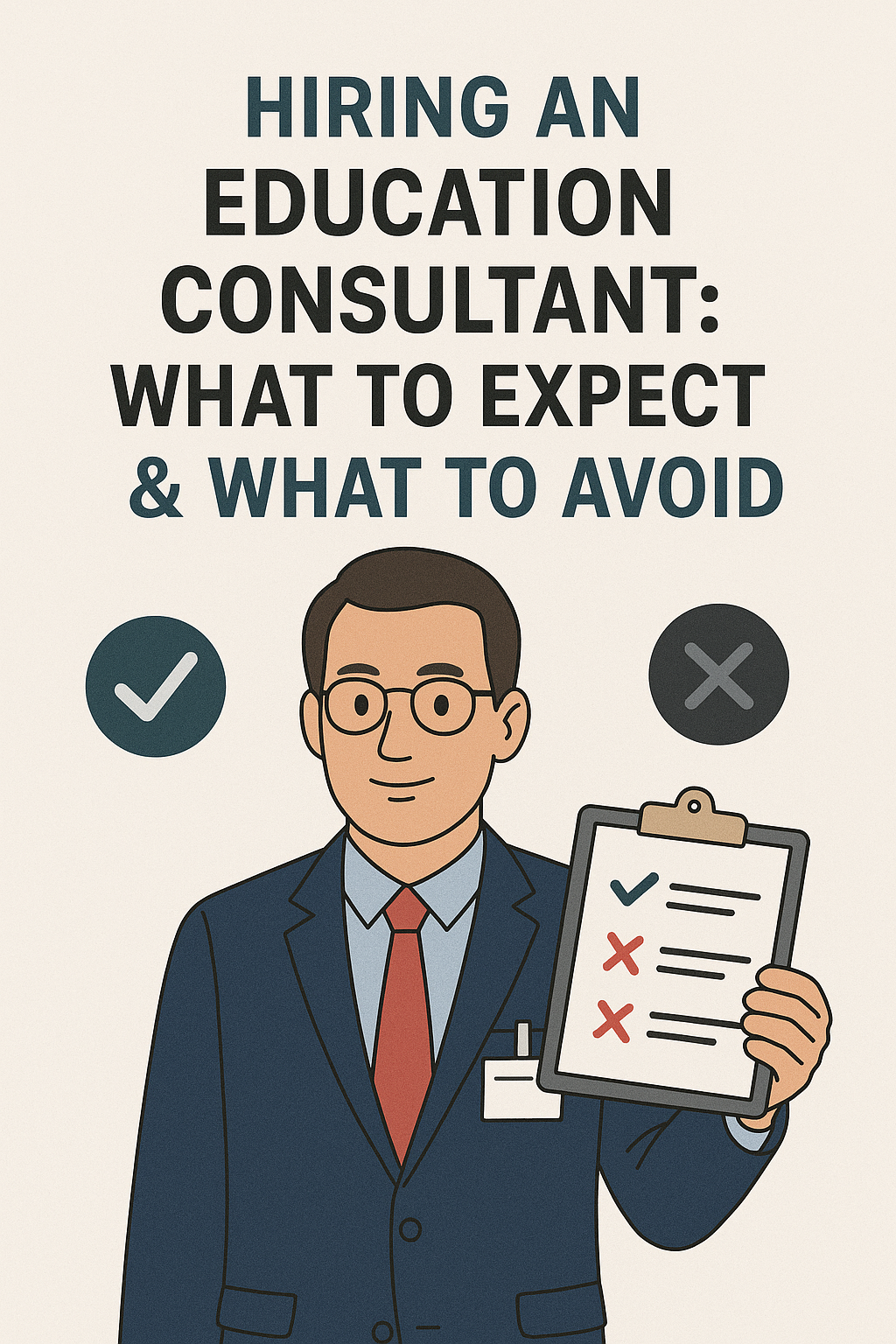Thinking of hiring an education consultant? Learn what to expect, what to avoid, and how to make the most of their expertise. Get expert tips and answers to your most common questions.
Hiring an education consultant can be a game-changer especially when the stakes are high, like choosing a university, applying abroad, or figuring out the best academic path for your child.
But here’s the problem: not all consultants are equal. Some can guide you with experience and clarity, while others might just recycle generic advice. This guide will walk you through what to expect when hiring an education consultant, red flags to watch out for, and FAQs that give you the full picture.
🎓 What to Expect When Hiring an Education Consultant
1. Personalized Guidance
A good education consultant takes time to understand the student’s profile interests, strengths, academic background, and long-term goals. They’ll tailor recommendations, not just hand over a list of popular schools.
Expect in depth conversations that go beyond just university names or rankings.
A good education consultant will guide you through crucial areas like:
- Suitable course options
- University shortlisting based on fit, not just rank
- Scholarship and funding guidance
- Career prospects after graduation
2. Application Strategy
Consultants should act as your strategic partner, helping you navigate every phase with clarity and structure.
They should help you map out the full application journey, from timelines and test prep to final submissions.
- Creating a timeline for submissions
- Preparing for standardized tests like SAT, GRE, or IELTS
- Building a strong student resume
- Crafting powerful personal statements and essays
3. Documentation & Admin Help
This includes more than just filling out forms it’s about organizing, reviewing, and presenting your profile professionally.
You can expect support with tasks like:
- Assisting with compiling documents like transcripts, recommendation letters, and SOPs
- Reviewing applications before submission
- Visa and interview preparation support for study abroad
4. Communication & Feedback
Expect regular updates, quick responses to queries, and honest feedback. You’re not just paying for information you’re paying for availability and clarity.
🚫 What to Avoid When Hiring an Education Consultant
1. Guaranteed Admission Promises
If a consultant guarantees you admission to a top university run. No one can guarantee acceptance unless something unethical is involved. Good consultants prepare you, but final decisions are always in the university’s hands.
2. One-Size-Fits-All Advice
If you receive a cookie-cutter list of “best colleges” without discussing your profile big red flag. Every student is different, and advice should reflect that.
3. Hidden Fees
Some consultants offer a “package” price but later charge extra for document editing or interview prep. Ask for a detailed breakdown before you pay.
4. Overdependence
A consultant should guide not do everything for you. You should still own your essays, choices, and communications. Universities spot inauthentic applications easily.
📌 FAQ Section – Everything You Need to Know About Education Consultants
Q1: What exactly does an education consultant do?
An education consultant helps students and parents make informed decisions about academic paths, school or university choices, applications, and scholarships.
Q2: Is hiring an education consultant worth it?
If you’re navigating complex applications (e.g., Ivy League, Oxbridge, or study abroad), a consultant can offer expertise that saves time and improves your chances.
Q3: What qualifications should I look for in a consultant?
Look for someone with experience in admissions, counseling, or education. Bonus if they’ve studied or worked in the country you’re targeting.
Q4: How early should I hire an education consultant?
Ideally 1–2 years before application deadlines. This allows time for test prep, profile building, and essay work.
Q5: Can consultants help with scholarships?
Yes. Many education consultants assist with identifying and applying for merit-based or need-based scholarships.
Q6: Are all education consultants the same?
No. Some specialize in undergraduate admissions, some in MBAs or PhDs. Others may focus only on specific countries or programs.
Q7: Do I need an education consultant for local universities?
Not necessarily. But if you’re unfamiliar with the application process or aiming for competitive courses, they can help.
Q8: How do I know if a consultant is legitimate?
Check for client testimonials, success stories, professional affiliations, and transparency in pricing.
Q9: What’s the difference between a school counselor and an education consultant?
School counselors are internal advisors, often with limited time and resources. Education consultants are external experts offering dedicated, personalized support.
Q10: Will they write my SOP or essays for me?
They shouldn’t. They can guide you, edit, and give feedback but the voice and content should remain yours.
Q11: Can an education consultant help after I’m admitted?
Yes. Many offer post-admission services like visa guidance, accommodation support, and pre-departure briefings.
Q12: How much does it typically cost to hire an education consultant?
Fees vary by country and service. It can range from $500 to over $5000, depending on the depth and scope.
Q13: Should I hire a freelance consultant or a firm?
Both have pros and cons. Freelancers may be more flexible and personal; firms may offer more structured services and larger teams.
Q14: How do I prepare for my first meeting with a consultant?
Bring your academic records, test scores (if any), and a clear idea of what you want. Be honest about goals and concerns.
Q15: What should I ask before signing up?
- What’s your success rate?
- Do you offer mock interviews?
- What services are included in the fee?
- How many students do you handle at once?
Hiring an education consultant is like getting a co-pilot for one of life’s most important journeys. The right one will empower you with knowledge, not just process your documents. Be informed, ask the right questions, and don’t settle for vague promises. You deserve better.
